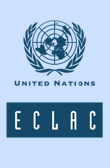| Source: Date: Updated: |
TheBahamasInvestor.com
Wednesday, April 1, 2020 Wednesday, April 1, 2020 |
Alicia Bárcena, executive secretary of the Economic Commission of Latin America and the Caribbean (ECLAC), has issued guidance on the region’s economic outlook and response to the coronavirus pandemic. Read extracts from her remarks below, or view the full text here.
“It is true that history recounts the devastating impact of past pandemics, but none of them broke out in such a populated world (with more than 7.7 billion people) or such an interconnected one.”
“Latin America and the Caribbean will be impacted via five main external channels: the decline of economic activity in our principal trading partners, especially China; the fall in prices for our commodities; the interruption of global and regional value chains; the steep drop in demand for tourism services, which primarily affects the Caribbean; and an increase in risk aversion and the worsening of global financial conditions and capital outflows from the region, with the consequent devaluation of our currencies.”
“Just a few months ago, and after ending 2019 with poor regional growth of just 0.1 per cent, ECLAC estimated that 2020 would witness a modest rebound and the growth rate would reach 1.3 per cent of GDP. Today, a conservative estimate – based on data that is still in the process of stabilizing – tells us that Latin America and the Caribbean will record negative growth of -1.8 per cent this year, with a probable downward bias.”
“The challenge is enormous, and it demands that we renew our toolbox. Each country will have to creatively explore and expand the framework of its possible responses, recognizing that there are no known formulas, while also recognizing that there are some imperative steps to be taken.”
“In the current situation, it cannot be overlooked that massive fiscal stimulus is needed to bolster health services and protect income and jobs, among the numerous challenges at hand.”
“Central banks have to ensure liquidity so the production apparatus can guarantee its continued functioning. These efforts must translate into support for companies with zero-interest loans for paying wages. In addition, companies and households must be aided by the postponement of loan, mortgage and rent payments. Many interventions will be needed to ensure that the chain of payments is not interrupted. Development banks should play a significant role in this.”
“And, certainly, multilateral financing bodies will have to consider new policies on low-interest loans and offer relief and deferments on current debt servicing to create fiscal space.”
“This pandemic has the potential to transform the geopolitics of globalization, but it is also an opportunity to survey the benefits of multilateral action and make room for needed debate on a new, sustainable and egalitarian development model.”











